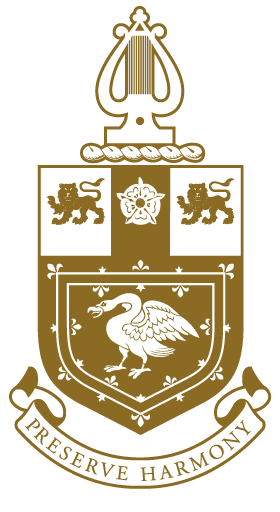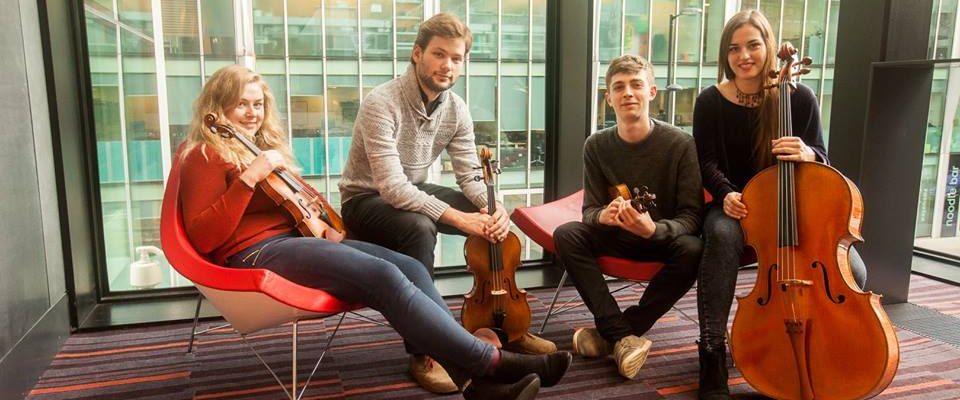Young Artist Interview: William Cole
My formative musical experiences were, as for many musicians, during my time as boy chorister in one of the UK’s great cathedral. In my case this was at Winchester, where I was part of the daily round of services – six a week – as well as regular concerts and tours. A number of things from that part of my life have stayed with me. I was introduced to an enormous and amazing repertoire, from Byrd, Tallis and Gibbons via the great oratorios to some thrilling and, with hindsight, influential contemporary music. I also became more or less ‘fluent’ in the language of music – getting good at sight-reading was the only way to deal with the daily onslaught of new repertoire.
Just as importantly, I was introduced to what the idea of a ‘professional’ musician was. This went both ways. It was of course most clear in the standard to which us 9-year-olds were held – it was expected that mistakes would not happen, and that you wouldn’t have to be told anything twice. On the flip side, I became comfortable with many realities of musical life, giving concerts in the great halls of the world, performing live on radio and television and so on. I experienced how important music is to so many people. I found out that professional musicians, in my case the lay clerks that sang behind me, are real people too.
More than anything, it’s an amazing thing for a young person to be told that they are a professional, that despite their age they ‘are’ a musician. This fed into all parts of my music-making during my school years. A series of wonderful teachers made it clear that I ‘was’ a composer, and so should write pieces for various school ensembles. And, since I ‘was’ a conductor, I should conduct them too! And so on and so forth – by the time I went to Cambridge University after a year teaching music in America, I was already fairly certain that I was going to make music my life.
At Cambridge I plunged into musical life, singing in my college choir and having a wonderful time (while learning a fantastic amount) conducting all the university orchestras and ensembles. I also loved my degree work – studying the history of music, you find how many of the conversations we have today, especially in reacting to the new and unfamiliar, have been rehearsed repeatedly for the last few centuries. I also began to write music more seriously, guided by some wonderful composition teachers – Giles Swayne gave me whatever technique I now have, and Richard Causton opened many doors for me in terms of colour and sonority.
I was also beginning to have my works more widely performed. I was fortunate enough to leave Cambridge with a commission for the Britten Sinfonia’s At Lunch chamber music series, so I moved to London and set about combining work on that with developing a freelance career. It was a heady few years – I was teaching classroom music for half the week, and also conducting fringe opera productions, working with amateur choirs, singing in churches and writing music for various friends and colleagues. I also started working as Music Director of Filthy Lucre, an organisation founded by some friends at Cambridge that puts on themed nights which move from concert to gig to club night, presenting contemporary music alongside orchestrated popular music, DJs, and other art forms such as film, dance, sculpture. We’re reaching a genuinely new audience – over 90% of our audience saw something at our events that they rarely see live – and we’re excited that Arts Council England continues to support our work.
I’m now studying composition at the Royal Academy of Music, where I’m spending time doing things I would never have otherwise – a junk percussion dance score, anyone? – and deciding where I want to go next with music. Through The Musician’s Company outreach programme I give composition workshops in London schools, showing them that, despite the pictures of the ‘great composers’ on their walls and the heavy tomes of Bach, Beethoven and Brahms on the bookshelves, composing is something that is going on today – this is often a shock! – and can be something that is relevant to them. These workshops have been some of the most rewarding music-making I’ve ever done, and I’m now exploring how to make education and outreach work a major part of what I do in the coming years.
Indeed, the challenges of balancing different musical focuses have been well-rehearsed. I’m no exception to this, currently enjoying music-making as a composer, conductor, pianist, singer and now also as an animateur. For some years now I’ve been asked ‘when are you going to specialise?’. It’s a tricky one – I love all the things I do, and they all contribute in different ways to my musical practice. And on a practical level, doing lots of different things also keeps me in bread and manuscript paper! Looking back at the history of music, I wonder whether our current trend for specialism is actually fairly recent. Even in this country in this century, figures like Britten and more recently Oliver Knussen and Thomas Adès work at the highest level in more than one discipline.
While I would never compare myself to these people, their example does suggest that the question we should be asking young musicians is perhaps not ‘what’ they are – what they play, how they make a living – but ‘how’ they are a musician, how their passion for music is expressed on a day to day basis. That might well be in playing their instrument, but it also might be in the teaching they do, or the concert series they’ve set up, or the community project they’re involved with. For me at the moment, I’m fortunate enough that, with the generous support of the Worshipful Company of Musicians, I’m able to express that passion in all kinds of wonderful ways.
You can find out more about William at williamcole.co.uk.





